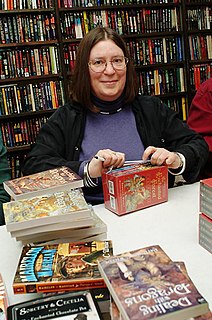A Quote by Carol White
What I always tell my clients is to put yourself in your potential customer's shoes - what would you want to hear about this story/book and does this [marketing material] deliver that information?
Related Quotes
Think about it: if you were running a multi-million dollar company, and your database of customer information was stolen, would you want to tell your clients? No. Most companies did not until the laws required them to. It's in the best interest of organisations - when they're attacked and information is stolen - to tell nobody.
My mother used to say, "Tell your brain you want that piece of information or you want to solve this problem, and then just walk away from it. Just forget about it. Just do something else, completely distract yourself, and you'll see, it's like a computer. Eventually, it will deliver it up." And I find that's really true.
I'll never forget my high school acting teacher, Anthony Abeson, who said, "It starts with the shoes." When I think about a character, it does start with the shoes: What kind would she wear? How would she walk in them? If I'm going to put on a dress for a role - I don't care if it's the hardest dress to put on - I have to put the shoes on first. The physicality leads me to the character.
The way I lived, I grew up in a time where people would take your shoes, they'll take your jacket, they'll take your cheese without a gun. So people would jump on you - this was like fourteen, fifteen years old. So it always taught me that you gotta have your crew, in some ways you gotta move, don't put your self in harm's way, and definitely if you're a street dude and want any kind off credibility, don't put yourself under the mercy of anybody else, or you'll be at their mercy; they can do what they want to do to you.
What's your story? It's all in the telling. Stories are compasses and architecture; we navigate by them, and to be without a story is to be lost in the vastness of world that spreads in all directions like arctic tundra or sea ice. To love someone is to put yourself in their place, we say, which is to put yourself in their story, or figure out how to tell yourself their story. Which means that a place is a story, and stories are geography, and empathy is first of all an act of imagination, a storyteller's art, and then a way of traveling from here to there.
Is there anyone’s life story you don’t want to know?” “Not really.” His expression was unexpectedly serious. “Because people make a story of their lives. Gains, losses, tragedy and triumph—you can tell a lot about someone simply by what they put into each category. You can learn a lot about what you put into each category by your reaction to them. They teach you about yourself without ever intending to do it—and they teach you a lot about life.
Times have changed and so have heroes and heroines, but the core of what makes readers happy has remained the same: Does the material touch you, resonant with you, stick with you? Do you feel yourself in the pages, see yourself walking in another person's shoes, hear the voices as they speak? Are you in love with the way they are in love?



































